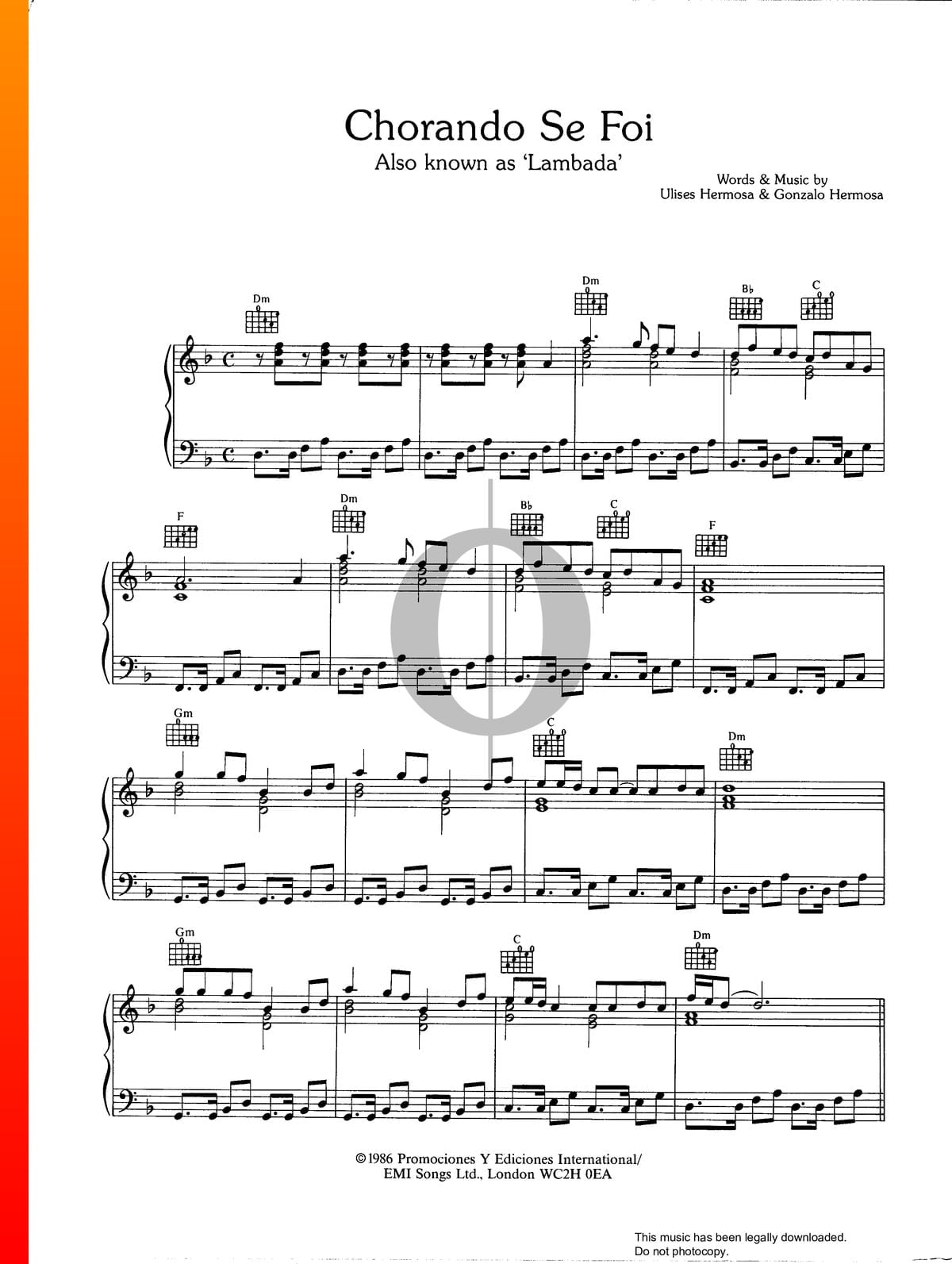

Īlso in 1989, Kaoma released their first album Worldbeat which achieved worldwide success, becoming - along with Beto Barbosa - one of the legends of Brazilian lambada. "Lambada" fared better in Europe, reaching number 4 in the UK Singles Chart.

" Dançando Lambada" and " Mélodie d'amour" were the next two singles and were also hits, although they failed to earn the same success as "Lambada", which itself peaked at number 46 in the US Billboard Hot 100. Given Kaoma's clear act of plagiarism and release of their single without Los Kjarkas' permission, Los Kjarkas successfully sued. The song in Portuguese is a mix cover of Márcia Ferreira's 1986 hit "Chorando se foi" (lyrics translated to Portuguese) and the Cuarteto Continental hit "Llorando se fue" (first upbeat version of the song introducing the accordion), released in 1984 through the Peruvian record label INFOPESA and produced by Alberto Maravi both songs were adapted from the 1981 Bolivian song Llorando se fue by Los Kjarkas.In 1989, they had a major chart-topping international hit with their dance music single " Lambada", a direct cover of the 1986 dance hit " Chorando Se Foi" by Brazilian singer-songwriter Márcia Ferreira, which itself was a legally authorized Portuguese-translated rendition of the original slow ballad " Llorando se fue" (1981) by Bolivian group Los Kjarkas. The video, filmed on Cocos beach in the city of Trancoso, in the state of Bahia, Brazil, features the Brazilian child duo Chico & Roberta.

It was released as the first single from Kaoma's debut album Worldbeat. It features guest vocals by Brazilian vocalist Loalwa Braz.

This song is part of many ethnic places and cultures such as Latin America and the Philippines. "Lambada", also known as "Chorando Se Foi (Lambada)" or "Llorando se fue (Lambada)" (both meaning "Crying went away" in Portuguese and Spanish, respectively), is a song recorded by French-Brazilian pop group Kaoma.


 0 kommentar(er)
0 kommentar(er)
